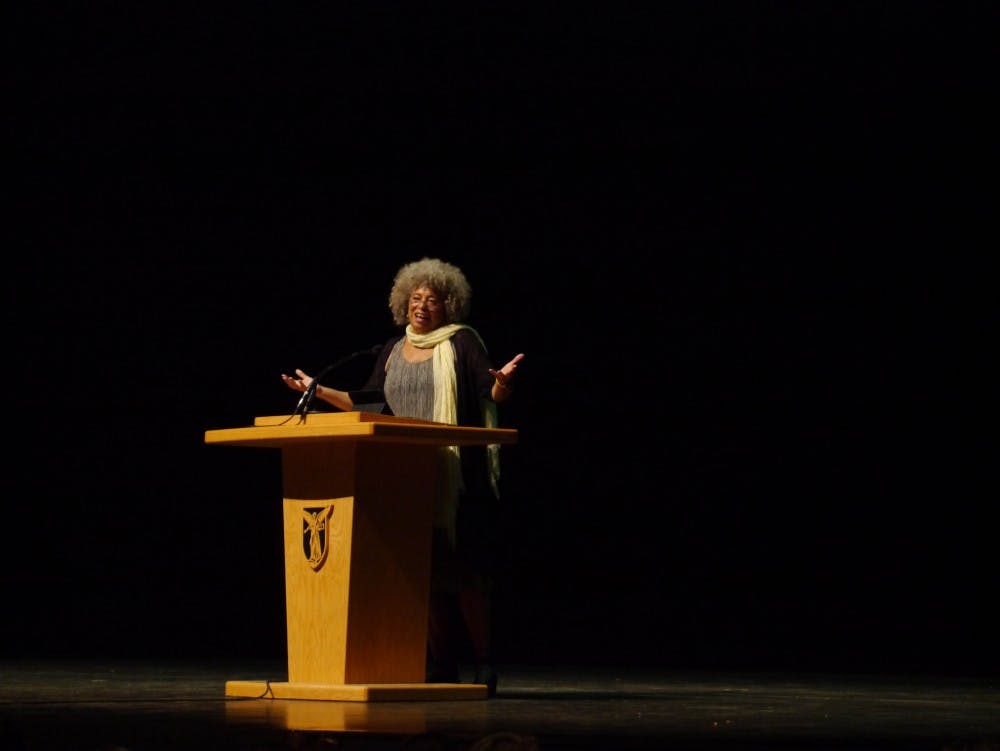Nearly an hour before Angela Davis' speech at 7 p.m. on Sept. 22, the line to purchase her books stretched to the doors of Emens Auditorium.
Melinda Messineo, interim associate provost for diversity and event organizer, estimated 2,500 community members, students, staff and people from other universities gathered to listen and ask Davis questions.
The event was introduced by Simon Balto, associate professor of history and director of African American studies, and President Geoffrey Mearns.
President Mearns said Davis had been involved in social justice movements all around the world, emphasized the importance of building community, was on trial for 18 months, authored nine books and taught for 15 years at the University of California, Santa Cruz.
The crowd then welcomed Davis on its feet, with people clapping and cheering from spots near the stage to seats in the balcony.
Davis, who prefers the term “black studies” to “African American studies,” said that black history and history in general are intertwined and not two separate fields of study.
“There is something over here that’s called black history that is separate from the U.S. History, [when] in fact the history of African-descended people is central to the history of the entire hemisphere,” Davis said.
She talked about the Black Lives Matter movement and said the criminalization of communities is because of racial discrimination and poverty.
“Black lives ought to matter,” Davis said. “If and when black lives finally do matter, that will be an indication that all lives matter.”
In her talk, often punctuated by laughter, cheering and spontaneous applause, Davis also discussed her views on racial injustice in U.S. history, the criminalization of blackness and poverty by those in power and the different forms that racism and injustice take in the U.S., particularly in the prison system.
She said the trans women of color who cannot easily pass as cisgendered women are the most consistent targets of violence, and that not only should prisons be transformed, but the need for the system should be eradicated.
Justin Miti, senior criminal justice major, and Maggie West, senior journalism-news major, agreed speakers like Davis are important and inspirational.
Miti said that Davis’ speech lit a fire inside of him, and her emphasis on community involvement was important to both him and West.
West, who sat in the front row, said the Davis' speech was an “indescribable” experience that should be offered more often.
“Ball State, bring more like her please,” West said. “It’s amazing to say I’ve actually met, that I’ve seen someone who helped history, who helped my history, helped my people.”





